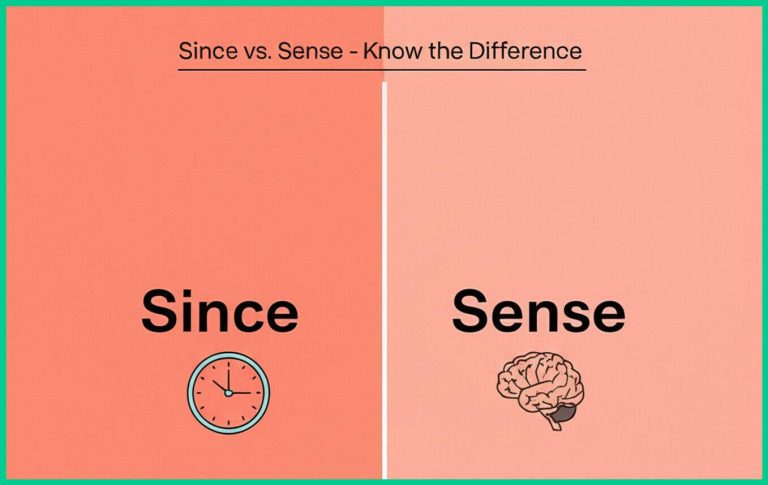Science Words That Start With Q: A Grammatical Exploration
Science is a vast field with a vocabulary all its own. Many scientific terms, especially those used in advanced studies, can seem intimidating. Finding science words that start with the letter “Q” might seem like a challenge, but this uncommon letter holds some fascinating terms within the world of science.
From quantum to quark, many of these words are linked to advanced concepts in physics, chemistry, and biology. Although “Q” isn’t the most frequently used letter in scientific vocabulary, the words it introduces often represent complex and important ideas.
In this article, we’ll explore a collection of science-related words that begin with “Q,” along with their meanings and relevance in various scientific fields. Whether you’re a student, educator, or simply curious about science, these terms will expand your vocabulary and deepen your understanding of the scientific world.
Definition of Science Words Starting with Q
Science words that start with the letter “Q” are terms used across various scientific disciplines. These words, like any other scientific terminology, have specific meanings within their respective fields.
Grammatically, they function as nouns, verbs, adjectives, or adverbs depending on the word and its context within a sentence. Understanding their definitions and grammatical roles is crucial for accurate scientific communication and comprehension.
For example, the prefix “quad-” or “quart-” often indicates “four,” as seen in words like “quadrupole” (having four poles) or “quaternary” (fourth in order or rank). The suffix “-ation” often turns a verb into a noun, as in “quantification” (the act of measuring or expressing something numerically).
Analyzing the morphological structure of these words can make them less intimidating and easier to remember.
Examples of Science Words Starting with Q
The following tables provide numerous examples of science words starting with “Q,” categorized by scientific discipline. Each example includes a definition and a sentence illustrating its usage.
Table 1: Physics-Related “Q” Words
In physics, “Q” words often relate to quantum mechanics, electromagnetism, and thermodynamics. These terms are essential for describing fundamental physical phenomena and properties.
This table showcases physics-related terms that start with “Q.” It includes definitions and example sentences to illustrate how each term is used in a scientific context.
| Word | Definition | Example Sentence |
|---|---|---|
| Quantum | The minimum amount of any physical entity involved in an interaction. | The energy of a photon is a quantum of electromagnetic radiation. |
| Quark | An elementary particle and a fundamental constituent of matter. | Protons and neutrons are composed of quarks. |
| Quasar | A massive and extremely remote celestial object that emits exceptionally large amounts of energy. | Astronomers study quasars to understand the early universe. |
| Quadrupole | Having four poles; an arrangement of four electric charges or magnets. | The quadrupole magnet focused the particle beam. |
| Quality Factor (Q-factor) | A dimensionless parameter that describes how under-damped an oscillator or resonator is. | The Q-factor of the circuit was optimized for minimal energy loss. |
| Quantum entanglement | A physical phenomenon that occurs when pairs or groups of particles are generated or interact in ways such that the quantum state of each particle cannot be described independently of the others. | Quantum entanglement is a key resource in quantum computing. |
| Quantum field theory | A theoretical framework that combines classical field theory, special relativity, and quantum mechanics. | Quantum field theory provides a comprehensive description of fundamental particles and forces. |
| Quantum gravity | A field of theoretical physics that seeks to describe gravity according to the principles of quantum mechanics. | Quantum gravity is one of the biggest unsolved problems in modern physics. |
| Quantum hall effect | A quantum mechanical version of the Hall effect, observed in two-dimensional electron systems subjected to low temperatures and strong magnetic fields. | The quantum hall effect provides a precise measurement of the fine-structure constant. |
| Quantum mechanics | A fundamental theory in physics that provides a description of the physical properties of nature at the scale of atoms and subatomic particles. | Quantum mechanics governs the behavior of particles at the atomic level. |
| Quantum number | A number that specifies the state of a quantum system. | Each electron in an atom is described by a set of four quantum numbers. |
| Quantum optics | The study of the interaction of light and matter at the quantum level. | Quantum optics explores phenomena such as single-photon interference. |
| Quantum state | A mathematical entity that provides a probability distribution for the outcome of each possible measurement on a system. | The quantum state of the particle is described by its wave function. |
| Quantum tunneling | A quantum mechanical phenomenon where a particle tunnels through a barrier that it classically could not surmount. | Quantum tunneling is essential for the operation of certain electronic devices. |
| Quench | To rapidly cool a material. | The superconducting magnet was quenched, causing it to lose its superconductivity. |
| Quiescent | Being at rest or inactive. | The plasma remained quiescent during the experiment. |
| Qubit | A unit of quantum information. | A qubit can exist in a superposition of states. |
| Quadrature | The state of being at a 90-degree phase difference. | The two signals were in quadrature. |
| Quasilinear | Approximating to a linear relationship. | The plasma behavior was quasilinear under these conditions. |
| Quotient | The result of division. | The quotient of energy and time gives power. |
Table 2: Chemistry-Related “Q” Words
Chemistry uses “Q” words to describe compounds, reactions, and analytical techniques. These terms are critical for understanding the composition, structure, properties, and reactions of matter.
This table focuses on chemistry-related terms starting with “Q,” providing definitions and example sentences for clarity.
| Word | Definition | Example Sentence |
|---|---|---|
| Quinine | A bitter crystalline compound present in cinchona bark, used as a tonic and formerly as an antimalarial drug. | Quinine was historically used to treat malaria. |
| Quinhydrone | An equimolecular compound of quinone and hydroquinone. | A quinhydrone electrode can be used for pH measurement. |
| Quaternary Amine | An amine in which the nitrogen atom is bonded to four organic groups. | Quaternary amines are often used as surfactants. |
| Quantitation | The determination of the amount of a substance. | Quantitation of the protein was performed using mass spectrometry. |
| Quantum Dot | A semiconductor nanocrystal that exhibits quantum mechanical properties. | Quantum dots are used in bioimaging and display technologies. |
| Quench (Chemistry) | To stop a chemical reaction suddenly. | The reaction was quenched by adding ice water. |
| Quorum Sensing | A system of stimulus and response correlated to population density. | Quorum sensing allows bacteria to coordinate their behavior. |
| Quinone | A class of cyclic organic compounds with two ketone groups. | Quinones are involved in electron transport in photosynthesis. |
| Quinaldine | A heterocyclic aromatic organic compound. | Quinaldine is used in the synthesis of cyanine dyes. |
| Quality Control | A system for maintaining desired standards in a product or service. | Quality control is essential in pharmaceutical manufacturing. |
| Quantitative Analysis | The determination of the amount of each element or compound present in a substance. | Quantitative analysis revealed the concentration of iron in the sample. |
| Quotient | The result obtained by dividing one quantity by another. | The reaction rate quotient is used to determine equilibrium. |
| Quercetin | A flavonoid found in many plants and foods. | Quercetin is known for its antioxidant properties. |
| Quicksilver | An older name for mercury. | Quicksilver was historically used in thermometers. |
| Quaternary structure | The arrangement of multiple folded protein or nucleic acid molecules in a multi-subunit complex. | The quaternary structure of hemoglobin involves four subunits. |
| Quaternization | The process of converting a tertiary amine into a quaternary ammonium salt. | Quaternization is used to modify the properties of polymers. |
| Quinhydrone electrode | An electrode used for measuring pH, based on the equilibrium between quinone and hydroquinone. | The quinhydrone electrode is useful in certain pH ranges. |
| Quantum yield | The number of times a specific event occurs per photon absorbed by the system. | The quantum yield of fluorescence is high for this dye. |
| Quench gas | A gas used to rapidly cool a sample or reaction. | The quench gas rapidly froze the sample. |
| Quasichemical | An approximation used in statistical mechanics to model the local structure of liquids and solutions. | The quasichemical approximation provides insights into molecular interactions. |
Table 3: Biology-Related “Q” Words
In biology, “Q” words might refer to specific organisms, biological processes, or anatomical structures. These terms are necessary for describing the diversity and complexity of life.
| Word | Definition | Example Sentence |
|---|---|---|
| Quorum Sensing | A system of stimulus and response correlated to population density in bacteria. | Quorum sensing enables bacteria to coordinate gene expression. |
| Quarantine | A period of isolation to prevent the spread of infectious disease. | The patient was placed in quarantine to prevent further infection. |
| Quiescence | A state of inactivity or dormancy in cells or organisms. | Stem cells can enter a state of quiescence to conserve resources. |
| Quokka | A small macropod native to Western Australia. | The quokka is known for its friendly appearance. |
| Quadriplegic | A person affected by paralysis of all four limbs. | The accident left him quadriplegic. |
| Quintuplet | One of five offspring born at one birth. | The doctor delivered healthy quintuplets. |
| Quiescent center | A region in the root apical meristem of plants where cell division is slow or absent. | The quiescent center maintains the stem cell population in the root. |
| Quorum | The minimum number of members of an assembly or society that must be present at any of its meetings to make the proceedings of that meeting valid. | The committee couldn’t vote because they didn’t have a quorum. |
| Quantal release | The release of neurotransmitter in discrete packets or quanta. | Quantal release is a fundamental mechanism of synaptic transmission. |
| Quercetinase | An enzyme that catalyzes the degradation of quercetin. | Quercetinase breaks down quercetin in certain microorganisms. |
| Quality of life | The general well-being of individuals and societies, outlining negative and positive features of life. | The new treatment significantly improved the patient’s quality of life. |
| Quantitative trait | A trait that varies continuously and is influenced by multiple genes and environmental factors. | Height is an example of a quantitative trait. |
| Quarantine pest | A pest of potential economic importance to the area endangered thereby and not yet present there, or present but not widely distributed and being actively controlled. | The imported plants were inspected for quarantine pests. |
| Quiescent stem cell | A stem cell that is temporarily inactive but can be activated to divide and differentiate under certain conditions. | Quiescent stem cells contribute to tissue repair after injury. |
| Quorum quenching | Interference with quorum sensing signaling to disrupt bacterial communication. | Quorum quenching is being explored as a strategy to control bacterial infections. |
| Quadrat | A square or rectangular plot of land marked off for the study of plants and animals. | Ecologists used a quadrat to sample the vegetation in the forest. |
| Qualitative data | Descriptive data that is not numerical. | Observations about animal behavior are considered qualitative data. |
| Quantitative data | Numerical data. | Measurements of plant growth are considered quantitative data. |
| Quaking aspen | A type of tree, *Populus tremuloides*, known for its trembling leaves. | The forest was filled with quaking aspen trees. |
| Quill | The hollow shaft of a feather. | The bird preened its quills. |
Table 4: Geology-Related “Q” Words
Geology uses “Q” words to describe geological periods, rock formations, and geophysical phenomena. These words help define Earth’s history and structure.
| Word | Definition | Example Sentence |
|---|---|---|
| Quartz | A hard, crystalline mineral composed of silicon and oxygen atoms. | Quartz is a common component of many rocks. |
| Quartzite | A metamorphic rock formed from sandstone. | The mountain ridge was made of solid quartzite. |
| Quaternary Period | The most recent geological period, spanning from 2.58 million years ago to the present. | The Quaternary Period is characterized by cycles of glaciation. |
| Quick Clay | A highly sensitive clay soil that can lose its strength and flow like a liquid when disturbed. | Landslides are common in areas with quick clay deposits. |
| Quoin | A structural feature of a building, typically a corner, made of large, dressed stones. | The building had decorative quoins at its corners. |
| Quarry | A place, typically a large, deep pit, from which stone or other materials are or have been extracted. | The quarry provided the stone for the construction of the city. |
| Quake | An earthquake. | The quake caused significant damage to the infrastructure. |
| Quartz monzonite | An intrusive igneous rock with roughly equal amounts of plagioclase and alkali feldspar. | The sample was identified as quartz monzonite. |
| Quartz vein | A sheetlike body of quartz formed within a crack or fissure in a rock. | The gold was found within a quartz vein. |
| Quaternary deposit | A geological deposit formed during the Quaternary Period. | The valley was filled with Quaternary deposits. |
| Quarry water | Water accumulating in a quarry. | The abandoned quarry water formed a small lake. |
| Quench zone | A zone of rapid cooling in a geothermal system. | The quench zone is characterized by high mineral deposition. |
| Quartz arenite | A sandstone composed of more than 95% quartz grains. | The beach was made of fine quartz arenite. |
| Quartz diorite | An intrusive igneous rock intermediate in composition between diorite and granite. | The rock sample was classified as quartz diorite. |
| Quaternary fault | A fault that has been active during the Quaternary Period. | The region is prone to earthquakes due to the presence of a Quaternary fault. |
| Quarternary volcanism | Volcanic activity that occurred during the Quaternary Period. | Quarternary volcanism has shaped the landscape of this region. |
| Quicksand | A loose saturated sand that yields easily to weight or pressure. | He nearly got trapped in quicksand. |
| Quaternary glaciation | The series of glacial events that occurred during the Quaternary Period. | The quaternary glaciation left behind many distinctive landforms. |
| Quarry face | The exposed rock face in a quarry. | The geologist examined the quarry face for fossils. |
| Quartile | One of four equal groups into which a population can be divided. | The upper quartile of sediment samples contained the highest concentration of metals. |
Usage Rules for Science Q-Words
Using science words that start with “Q” correctly involves understanding their specific definitions and adhering to the grammatical rules of English. Here are some key rules to keep in mind:
- Nouns: Many science words starting with “Q” function as nouns, representing objects, concepts, or phenomena. Ensure proper noun-verb agreement in sentences. For example, “The quantum is a fundamental unit of energy.”
- Adjectives: Some “Q” words act as adjectives, modifying nouns to provide additional information. For example, “The quaternary structure of the protein is complex.”
- Context: Always consider the context in which the word is used. The meaning of a “Q” word can vary depending on the scientific discipline.
- Precision: Scientific writing demands precision. Use “Q” words accurately to avoid ambiguity or misinterpretation.
Furthermore, when writing scientifically, pay close attention to the accepted conventions within each field. For example, certain terms may have specific units of measurement associated with them, or they may be used in particular equations or formulas.
Always refer to reliable sources and consult with experts when in doubt.
Common Mistakes When Using Science Q-Words
Even experienced writers can make mistakes when using science words that start with “Q.” Here are some common errors to avoid:
- Confusing similar terms: For example, confusing “quantum” with “quantity.”
- Misspelling: Science words can be complex and prone to misspelling. Double-check the spelling, especially in formal writing.
- Incorrect usage: Using a “Q” word in the wrong context or with an incorrect meaning.
- Grammatical errors: Failing to use the correct grammatical form (e.g., using a noun as an adjective).
Here are some examples of common mistakes and their corrections:
| Incorrect | Correct | Explanation |
|---|---|---|
| The quantity of energy was quantized. | The quantum of energy was quantized. | “Quantity” refers to an amount, while “quantum” refers to a discrete unit. |
| The proccess was in quiscence. | The process was in quiescence. | “Quiescence” is often misspelled. |
| The quaternary structure determine the protein’s function. | The quaternary structure determines the protein’s function. | Subject-verb agreement error. |
Practice Exercises
Test your understanding of science words starting with “Q” with these practice exercises.
Exercise 1: Fill in the Blanks
Complete the following sentences with the appropriate “Q” word from the list: quantum, quasar, quarantine, quality, quaternary.
- The doctor recommended a two-week _______ for the patient with the infectious disease.
- Astronomers observed a distant _______ emitting powerful radiation.
- The _______ of the product was assessed through rigorous testing.
- The _______ structure of the protein is essential for its function.
- Energy is absorbed or emitted in discrete _______ .
Answer Key:
- quarantine
- quasar
- quality
- quaternary
- quantum
Exercise 2: True or False
Determine whether the following statements are true or false.
- A quark is a type of lepton.
- Quinine is used to treat bacterial infections.
- Quartz is a mineral composed of silicon and oxygen.
- Quorum sensing is a phenomenon observed in plants.
- Quaternary amines have three organic groups bonded to the nitrogen atom.
- Quantum entanglement requires physical contact between the particles.
- Quicksilver is an outdated term for silver.
- The Quaternary Period is the oldest geological period.
- Quasars emit exceptionally large amounts of energy.
- Quantum mechanics describes the behavior of macroscopic objects.
Answer Key:
- False
- False
- True
- False
- False
- False
- False
- False
- True
- False
Exercise 3: Sentence Completion
Choose the correct word from the options to complete the sentence.
- _________ is a fundamental theory in physics that describes the physical properties of nature at the scale of atoms and subatomic particles. (a) Classical mechanics (b) Quantum mechanics (c) Thermodynamics
- _________ are elementary particles and a fundamental constituent of matter. (a) Electrons (b) Protons (c) Quarks
- _________ are used in bioimaging and display technologies.(a) Quantum dots (b) Nanoparticles (c) Colloids
- _________ is a system of stimulus and response correlated to population density in bacteria.(a) Chemotaxis (b) Quorum sensing (c) Binary fission
- _________ is a hard, crystalline mineral composed of silicon and oxygen atoms.(a) Calcite (b) Quartz (c) Feldspar
- The patient was placed in _________ to prevent further infection.(a) isolation (b) quarantine (c) observation
- _________ is the determination of the amount of a substance.(a) Qualitative analysis (b) Quantitative analysis (c) Titration
- The mountain ridge was made of solid _________.(a) granite (b) basalt (c) quartzite
- The energy of a photon is a _________ of electromagnetic radiation.(a) quantity (b) quantum (c) wave
- Astronomers study _________ to understand the early universe.(a) black holes (b) quasars (c) nebulae
Answer Key:
- b
- c
- a
- b
- b
- b
- b
- c
- b
- b
Advanced Topics
For advanced learners, exploring the nuances of science words starting with “Q” can be particularly rewarding. Consider delving into the etymology of these words, tracing their origins and evolution over time.
Additionally, investigate the mathematical and statistical applications of terms like “quantile” and “quadratic” in scientific research.
Another area to explore is the use of “Q” words in interdisciplinary contexts. For example, “quantum computing” combines principles from physics, computer science, and mathematics.
Understanding the interplay between these disciplines can provide a more comprehensive understanding of these advanced concepts.
FAQ Section
Here are some frequently asked questions about science words starting with “Q.”
What is the difference between “quantum” and “quantity”?
“Quantum” refers to the smallest discrete unit of a physical property, while “quantity” refers to an amount or number. For example, the energy of a photon is a quantum of electromagnetic radiation, while the quantity of energy in a system can vary.
How is “quorum sensing” used in biology?
“Quorum sensing” is a communication system used by bacteria to coordinate their behavior based on population density. Bacteria release signaling molecules, and when the concentration of these molecules reaches a threshold, it triggers changes in gene expression.
What is the significance of the “Quaternary Period” in geology?
The “Quaternary Period” is the most recent geological period, characterized by cycles of glaciation and the evolution of modern humans. It spans from 2.58 million years ago to the present.
What are some applications of “quantum dots” in science?
“Quantum dots” are semiconductor nanocrystals with unique optical and electronic properties. They are used in various applications, including bioimaging, display technologies, and solar cells.
Why is it important to use precise language in scientific writing?
Precise language is crucial in scientific writing to avoid ambiguity and ensure accurate communication of complex concepts. Using the correct terminology and adhering to grammatical rules are essential for clarity and credibility.
What is the role of quercetin in biological systems?
Quercetin is a flavonoid, a type of plant pigment, found in many fruits, vegetables, and grains. It is known for its antioxidant, anti-inflammatory, and anticancer properties. It helps protect cells from damage caused by free radicals and oxidative stress, and may have other beneficial effects on human health.
How does the ‘Q’ factor affect the performance of an electronic circuit?
The ‘Q’ factor, or quality factor, is a dimensionless parameter that describes how underdamped an oscillator or resonator is. A high Q factor indicates a narrow bandwidth and low energy loss, making the circuit more selective and efficient. Conversely, a low Q factor indicates a wider bandwidth and higher energy loss, resulting in a less selective and efficient circuit.
Conclusion
Mastering science words that start with “Q” is an ongoing process that requires dedication and practice. Understanding their definitions, grammatical functions, and usage rules can enhance your scientific literacy and help you communicate more effectively in scientific contexts.
Remember to pay attention to context, avoid common mistakes, and continue to expand your vocabulary through reading and research.
I provided a comprehensive overview of science words starting with “Q,” including examples, usage rules, and practice exercises. Use this knowledge as a foundation for further exploration and continuous learning. Keep practicing, keep questioning, and keep expanding your scientific vocabulary.






